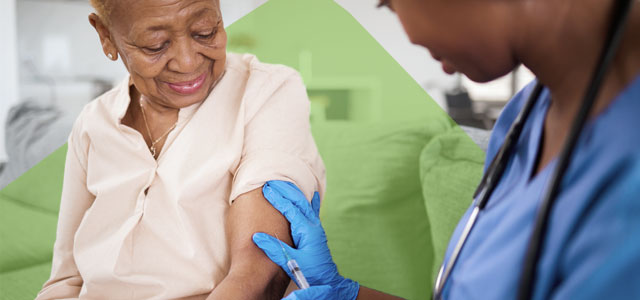
Vaccination is Key: Protecting Yourself from Flu, RSV, and COVID-19
Vaccinations can help keep you and your loved ones safe from sickness like the flu, RSV (Respiratory Syncytial Virus), and COVID-19. Vaccines can help your body fight off sickness. And if you do get sick, they can also help keep it from being as bad.
Getting vaccinated is even more important for children, older adults, and those with health problems. Let’s take a closer look at the flu, RSV and COVID-19 and why you should think about getting vaccinated.
Flu Vaccination
The flu spreads easily and can cause mild to severe sickness. In some cases, it can lead to death. The flu can make you feel sick very quickly. People who have flu often have:
- fever or feeling feverish/chills
- cough
- sore throat
- runny or stuffy nose
- muscle or body aches
- headaches
- fatigue (tiredness)
- vomiting and diarrhea, though this is more common in children than adults.
The flu vaccine is for everyone 6 months and older. Young children, people over sixty-five, pregnant women and those with health problems are more likely to get very sick. The flu virus changes every year, so it is important to get vaccinated each flu season.
RSV Vaccination
RSV is a common virus that usually causes mild, cold-like symptoms. These symptoms can include:
- congestion
- runny nose
- irritability
- decreased appetite
- fever
Most people who get RSV will get better in a week or two, but RSV can be serious. Infants and older adults are more likely to get very sick and may need to go to the hospital. We recommend that you talk to your doctor about getting vaccinated for RSV.
- Fever or chills
- Cough
- Shortness of breath or difficulty breathing
- Fatigue
- Muscle or body aches
- Headache
- New loss of taste or smell
- Sore throat
- Congestion or runny nose
- Nausea or vomiting
- Diarrhea
How to get a vaccine






